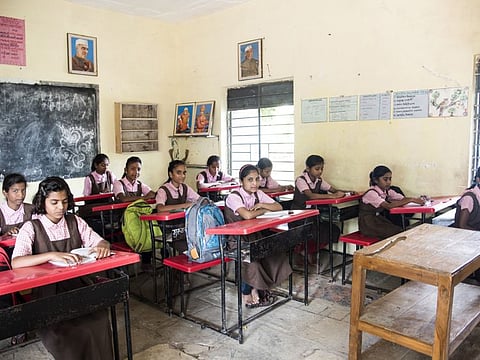Reshaping India's education policies
Proposal to do away with the examination system would mark a major shift

Among the top challenges of the times we live in is how to redefine the role and purpose of education. India’s proposal to do away with exams as put forth in the draft of its National Education Policy 2019, if cleared, would be a ground shift for a country that has been in deference to the traditional model of teaching all along.
For some time now, educationists and policy makers around the world have been enunciating the need to adopt a 21st-century learning model that is about aligning learning with the needs of the real world. And this is an important point to hammer on.
For decades, and perhaps more, the leitmotifs of many education systems have been a heightened emphasis on subject banding, rote learning and an exam system that makes marks or grades the deciding factor of a student’s prowess. But has this approach always worked? Has this transformed a learner into an effective thinker and doer? Should learning continue to be a cloistered classroom experience or can it be a formless process of discovery and delight? Can the eternal truth of individual abilities be subsumed into the standardisation of the collective learning? For education systems that held off on addressing these questions, technology came as the mighty disrupter, mocking their every old assumption, forcing them to re-examine what learning should be and how it can be applied to real life.
Many countries, including the UAE are shaping their education policies...It’s an investment in the future whose time has come.Gulf News
Today, as we journey well past the post-technology threshold and into more exciting areas of discovery, where the possibilities of shaping the world anew are nearly endless, the concept of education, if not suitably adapted to this journey, can be the deal-breaker. Because never before has there been such concern for the planet’s well-being and the species who inhabit it. The urgencies of today are vastly different than what the previous generations dealt with. A complete environment rehab, a speedy human rejuvenation of spirit and coexistence, the pursuit of ethical technology and a science and economy for the good of existence, are not just priorities for the current generations, they are of critical relevance for the ones to follow. How these generations will be prepared to take charge of the world they inherit is what will make the difference.
Many countries, including the UAE are shaping their education policies around these urgencies. It’s an investment in the future whose time has come.



